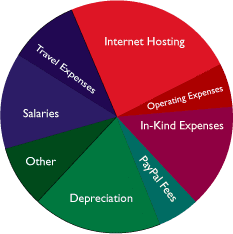How to Make Performance Enhancements at the Departmental Level
 The dreaded performance review is something that some employees look forward to and others fear. Many reviews are only conducted on an annual basis which isn’t necessarily a good thing. The managers who conduct the review aren’t always the best person to do so with employees feeling like they’re not in touch with their day-to-day work sufficiently to properly assess them.
The dreaded performance review is something that some employees look forward to and others fear. Many reviews are only conducted on an annual basis which isn’t necessarily a good thing. The managers who conduct the review aren’t always the best person to do so with employees feeling like they’re not in touch with their day-to-day work sufficiently to properly assess them.
There’s many approaches you can take to improve the performance of team members at a departmental level. Let’s look at a few of the ways to make work performance better and more consistent.
Set Realistic Goals & Objectives
It is all too easy for a team leader or department head to set goals based on the objectives that their boss has set for them. Sometimes there is a fundamental disconnect between goals set at a senior management level and what’s possible for people within the team. A leader has to understand the challenges ahead, help the team navigate them well and look to improve processes where a lack of structure and organization is the cause of poor performance.
When considering spending or budgeting within the business at the departmental level, referencing the Over Head Watch website provides insight into ways to manage costs more effectively and the common pitfalls to avoid.
Talk with Individual Team Members
Meet with each team member to discuss areas where they think they can personally improve. Talk with them about the difficulties they are having with getting their tasks completed efficiently and well. Is there a communication difficulty or a lack of critical information flow that continues to create obstacles for them? Can they think of any ways to change procedures to speed things up by cutting out unnecessary actions or replacing inefficient actions with more efficient ones?
Is Training Needed to Improve Performance?
The requirements of a role change, sometimes slowly, and other times at a rapid pace. If employees aren’t given the opportunity to re-train for new tasks, then they may perform them poorly. Offering training – either in-house or at a specialist training facility – provides employees with the tools they need to manage their workload better once they’re more up to speed on what’s needed.
Be open-minded about the training that’s required. You may expect them to be an expert at working an Excel spreadsheet to complete a new weekly task that’s been assigned to them, but perhaps they’ve barely covered the basics with Microsoft Excel and are floundering. Giving them a video training course or an off-site Excel course to get them updated quickly is the best action to take rather than being disappointed; no one can be great at everything. Empower your staff by giving them the knowledge and tools to get the job done better.
Frequency of Performance Reviews
Performance reviews need to be conducted on a regular basis. Ideally regular mini reviews of their performance, setting new targets and objectives and deciding what training might be needed to move the employee forward, are actions that should happen at least quarterly. Business simply moves too fast today to use an annual review structure. It also creates too much distance between a manager’s knowledge about the employee’s performance and the current reality.
Managing departmental performance is something that cannot be done at a distance. While micro-managing is not necessary or helpful, setting clear goals and providing the training necessary to help employees complete each task quickly and efficiently delivers the best results.












